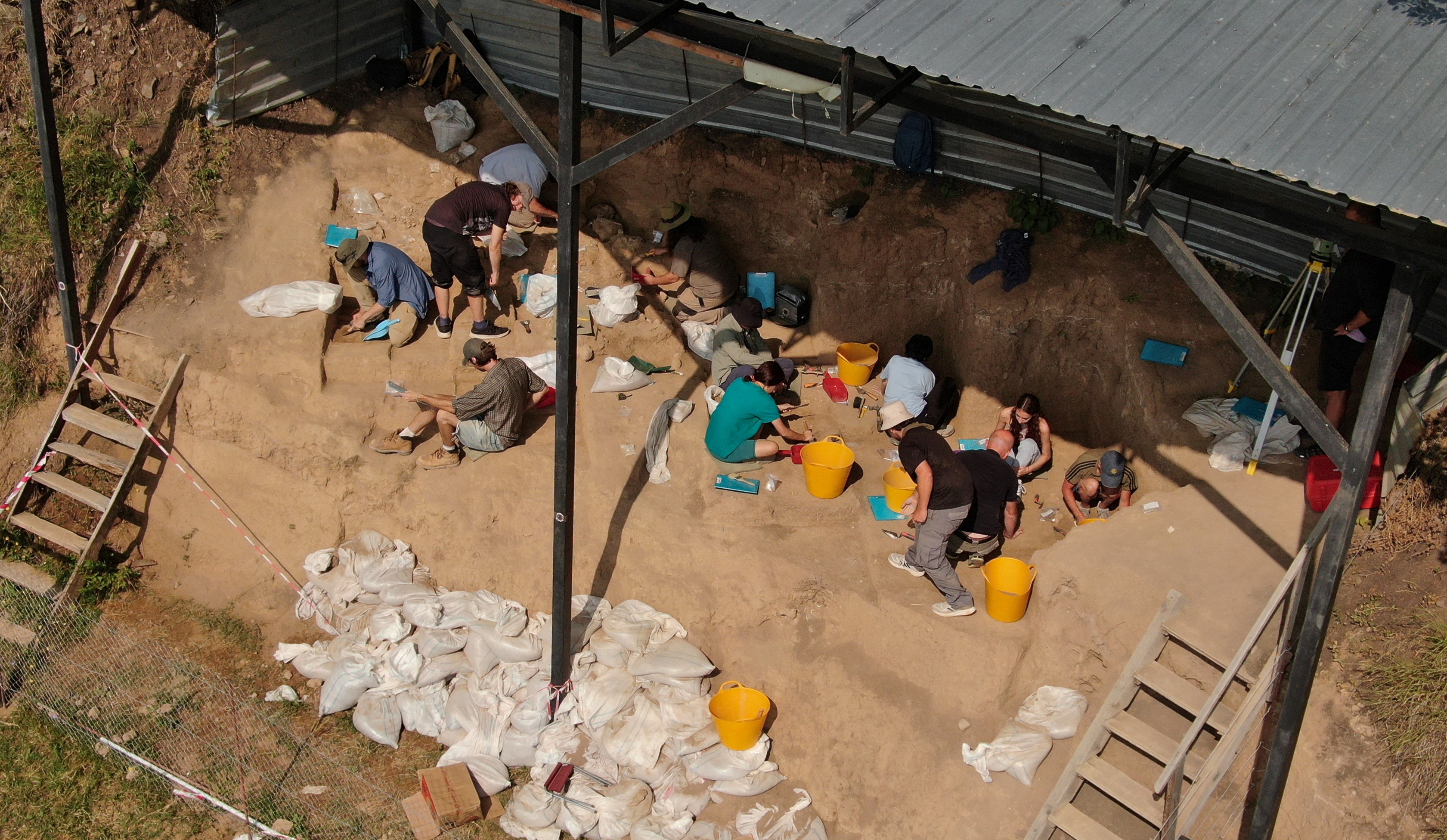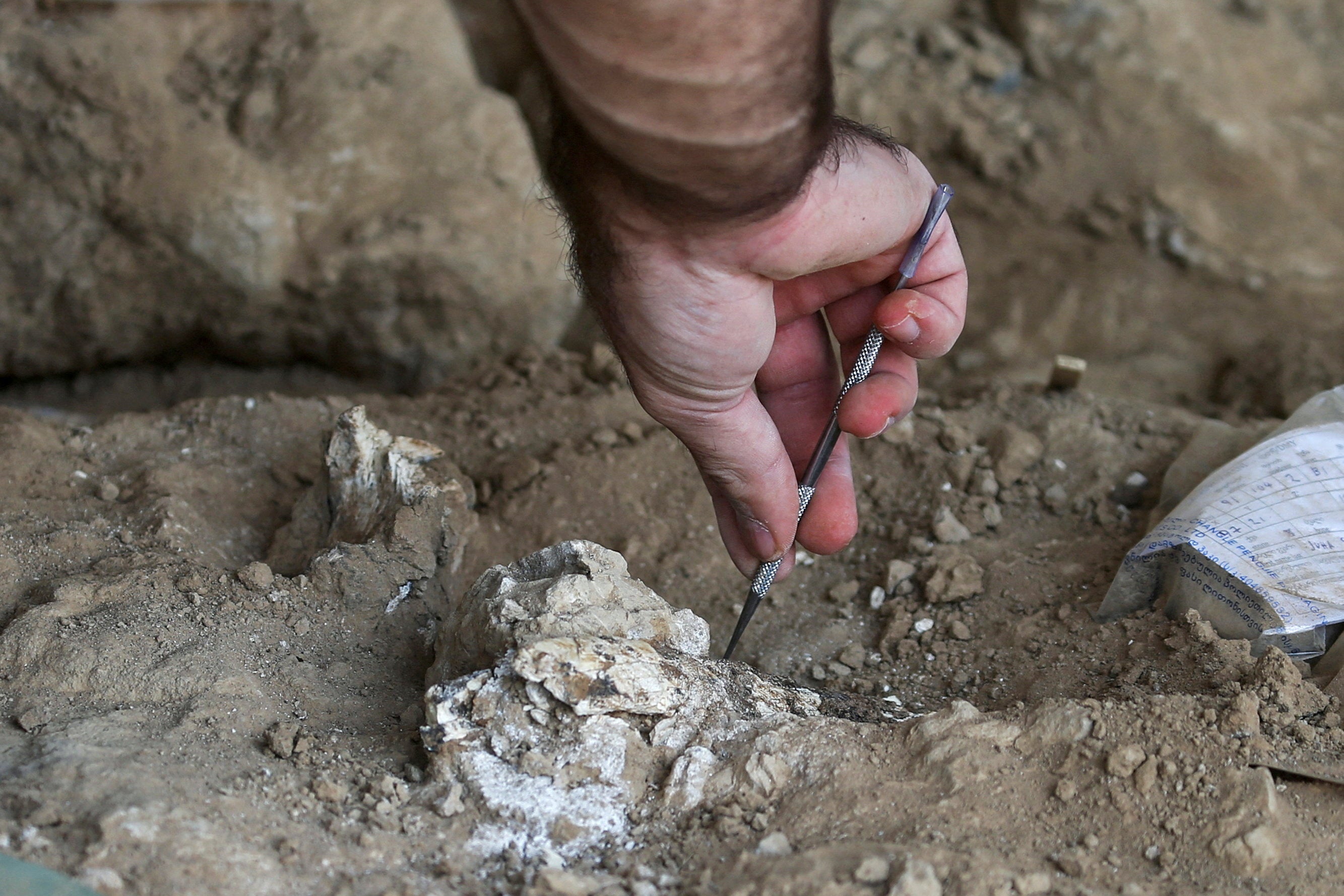
Archaeologists in Georgia have unearthed a 1.8-million-year-old jawbone belonging to an early human species.
The find is expected to shed light on some of the earliest prehistoric human settlements on the Eurasian continent.
The Georgian site at Orozmani - which is smaller than two parking spaces - has now yielded the oldest remains of early humans yet outside Africa and offers clues to the patterns of Homo erectus, a hunter-gatherer species that scientists believe started migrating around two million years ago.
"The study of the early human and fossil animal remains from Orozmani will allow us to determine the lifestyle of the first colonisers of Eurasia," said Giorgi Bidzinashvili, a professor of stone age archaeology at Ilia State University in Tbilisi.
"We think Orozmani can give us big information about humankind."

The lower jawbone was found around 100 km (62 miles) southwest of the Georgian capital of Tbilisi, where archaeologists in 2022 excavated a tooth from early humans of the same era.
In the nearby village of Dmanisi, 1.8-million-year-old human skulls have previously been found.
In this latest discovery, archaeologists also found fossils from animals including a sabre-toothed tiger, elephant, wolf, deer and giraffe, as well as a cache of stone tools.

Close study of the jawbone and the animal fossils can yield crucial answers about how early humans evolved after they left Africa, including what they ate and what the climate was like, scientists say.
At the Orozmani excavation site, archaeologists discover new remains of Homo erectus every year.
"My second day (on the dig) I found a nice little ankle bone," said Miles Alexandre, a recent anthropology graduate from the University of Rhode Island in the U.S.
"You go down five centimetres...there's a good chance you're going to find something."







